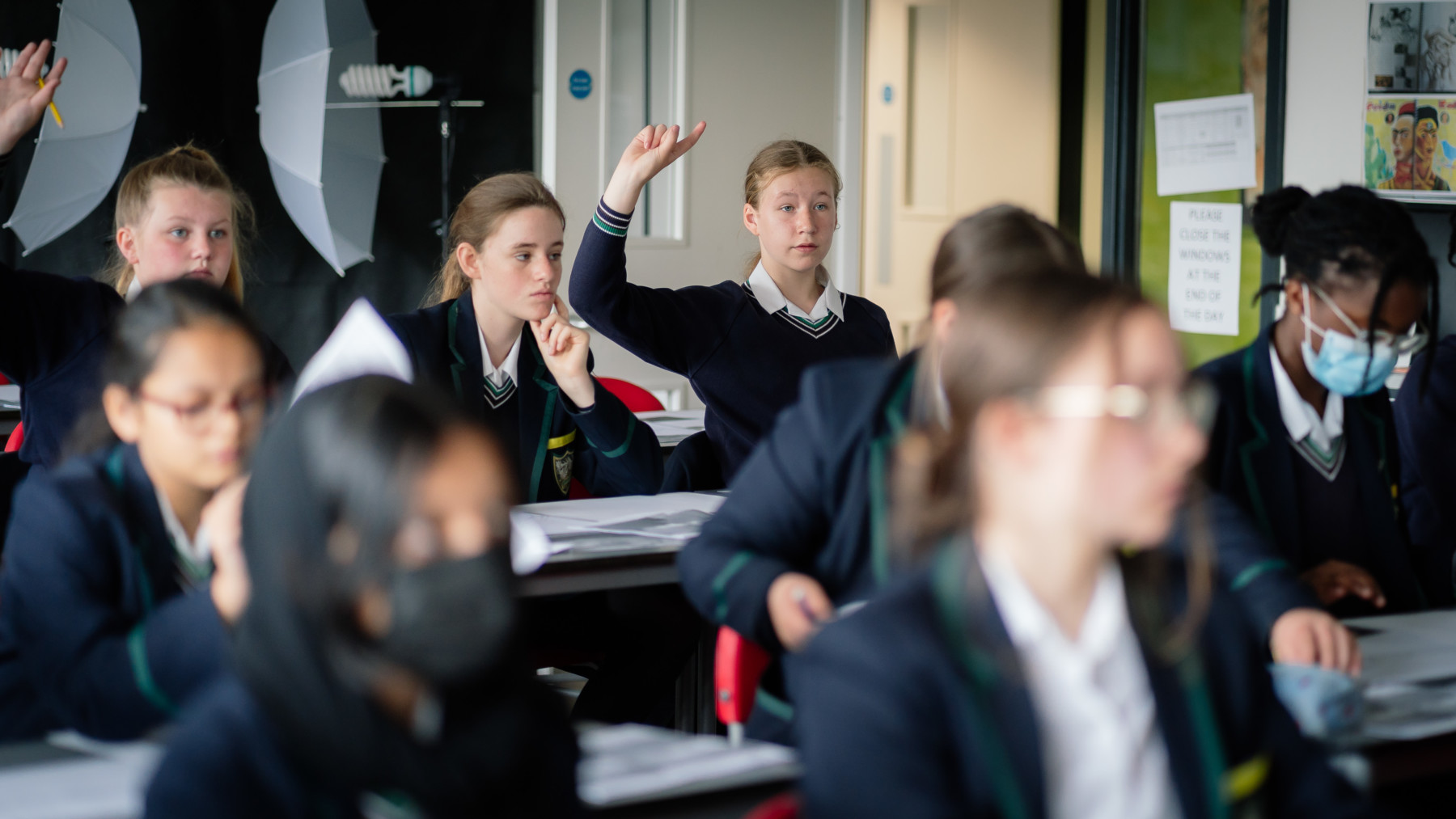Law
Intent
Law is a popular option at KS5 at St Anthony’s. Pupils choose the subject for a number of reasons; from a general interest in finding out how the law works to the determination to pursue a career related to law. Whatever the reason, it allows pupils to develop an important set of skills such as debate and essay writing that are transferable to other subjects and prepare them well for further study.
We offer the BTEC Extended Certificate in Applied Law which is a Level 3 course equivalent to one full A Level and is studied over two years. It is a mixture of examination and coursework and is modular. In the Year 12 coursework module, pupils learn about the different way laws are made, as well as the institutions involved in the practice of law. They will also learn about the roles of those working in the legal system such as barristers and solicitors. Additionally, they develop skills in analysis, application and evaluation. These skills are carried through, and further developed in Year 13. In their Year 12 examination module, pupils learn about the law of negligence, the Civil Court system, the awarding of damages and the details of personal injury claims. The course is wide and varied with something for anyone interested in the law. The curriculum is challenging and we have high ambitions for all of our pupils in Law, with many students using the subject as a gateway to university courses.
In Year 13 pupils study Criminal Law (exam) and develop their study of the Law of Tort (coursework). They look at the main criminal offences such as murder, manslaughter and theft as well as the defences available for those accused, such as insanity and intoxication. Pupils also study the main areas of Tort including negligence and nuisance. Pupils are able to then apply what they have learned to situations and become ‘lawyers’ themselves. We have been known to enact a full trial! Pupils build on the skills from Year 12 and become more adept at analysing legal scenarios, applying the relevant law and justifying their conclusions as well as providing a well-supported evaluation of the law.
We aim to develop students who can:
- write up the findings of their own research
- use case studies to explore complex or unfamiliar situations
- demonstrate practical and communication skills using appropriate presentations and role play
- use critical thinking, approach non-routine problems applying expert and creative solutions
- use systems and technology to develop and apply knowledge
- communicate with staff and peers, working collaboratively and presenting their ideas to their peers
- be able to self-manage and self-monitor. They will be able to be adaptable and resilient
Specification
Students follow the BTEC Level 3 National Certificate in Applied Law. Modules include Dispute Solving in Civil Law and Applying the Law.
Links to GCSE
It is not necessary for students to have studied GCSE Law but it is essential for them to have a good command of English. Modules are assessed through a combination of coursework and examinations.
Visits
Pupils have the opportunity to visit the Crown Court in Newcastle, where they can sit in the public gallery and witness a trial taking place.
Implementation
Year 12:
Unit 1: Dispute Solving in Civil Law.
Pupils learn about negligence, how it can be proven and what the implications are if a person is found to be liable. This is assessed in an exam that lasts 1 hr 30 mins and is worth 60 marks. It accounts for 25% of the overall grade.
Unit 2: Investigating Aspects of Criminal Law and the Legal System.
This is a coursework unit, it consists of a number of tasks from letter writing to case notes. There are 8 pieces of pass criteria, 5 pieces of merit criteria and 3 pieces of distinction criteria. These are assessed by staff in school, and a sample checked by the exam board. Pupils have the opportunity to resubmit work if they are struggling to meet the criteria. This accounts for 25% of the overall grade.
Year 13:
Unit 3: Applying the Law
Pupils learn about various criminal offences including murder and theft, they also learn about defences such as insanity and intoxication. This is assessed in an exam that lasts 2 hours and it worth 72 marks. It accounts for 33% of the overall grade.
Unit 4: Aspects of Tort
This is a second coursework module, it again covers pass, merit and distinction criteria. It is assessed by staff in school and moderated externally. Pupils have the opportunity to resubmit if struggling with the content. It accounts for 17% of the overall grade.
Skills to be developed:
- the ability to learn independently
- the ability to research actively and methodically
- being able to give presentations and being active group members. BTEC learners can also benefit from opportunities for deep learning where they are able to make connections among units and select areas of interest for detailed study.
- reading legal texts
- effective writing, with correct application of the law
- research skills
- analytical skills
- creative development
- preparation for assessment methods used in degrees.
